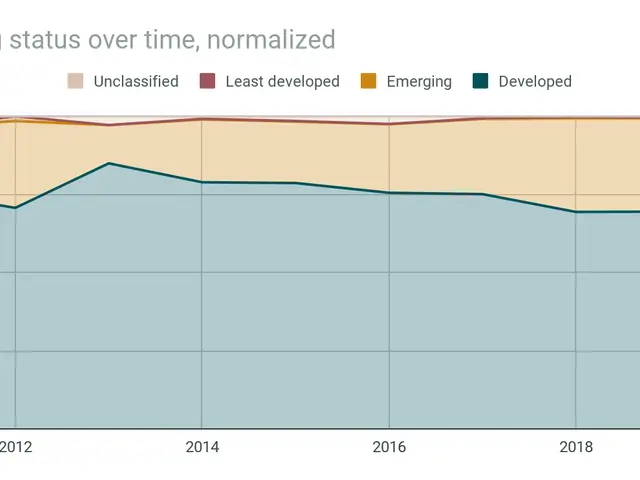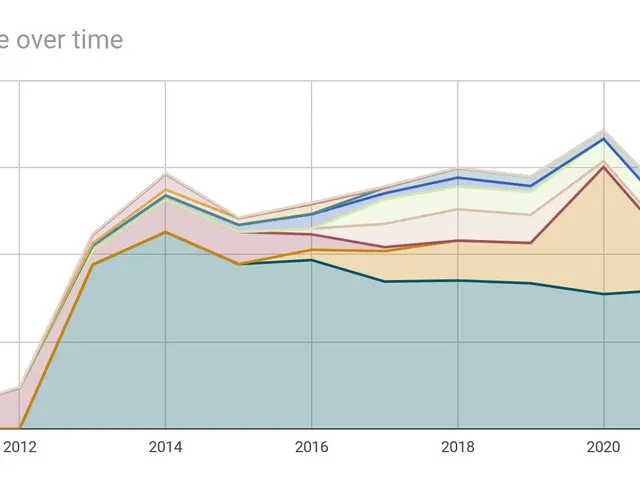Amidst intense price competition in its home market, Chinese EV giant BYD manages to thrive, Reporting a staggering 33% increase in earnings to 9.1 billion yuan (approximately 1.15 billion euros) during the spring season. Bucking expectations, BYD surpasses Volkswagen to claim the leading automaker title in China, demonstrating impressive resilience in the cutthroat competition.
The company's success can be attributed to its vertical integration strategy, with crucial components like batteries and drivetrains produced in-house. This allows BYD to exert better control over production costs and pricing, creating a competitive advantage.
BYD targets a 20% annual revenue growth, offering discounts on popular models like the Dynasty and Ocean series. With this strategic approach, BYD aims to secure over a third of the new energy vehicles (NEVs) market share in China, a sector encompassing electric vehicles and hybrid models.
During the second quarter, BYD delivered 426,039 fully electric vehicles, marking a 21% year-on-year increase. Although Tesla surpassed BYD in unit sales, BYD briefly topped Tesla in deliveries during the fourth quarter. Furthermore, BYD has shipped 1,432 vehicles to German customers and registered 4,317 units at the beginning of the year.
In response to domestic competition and escalating tariffs, BYD, along with other major Chinese electric vehicle manufacturers, seeks international expansion, focusing on markets like Europe. By establishing plants abroad, the company aims to drive sales volume growth, lower unit costs, and boost profits.
BYD's impressive earnings growth and aggressive expansion plans are fueled by various strategic initiatives. These include cost reduction strategies, like tricking down of Blade battery packs, driving unit margin improvements. BYD also offers smart driving technology features at no additional cost, accelerating market adoption and strengthening its competitive edge.
Through its canny pricing strategy, BYD successfully manages its profits in spite of offering price discounts. This, combined with its smart cost-reduction strategies, ensures the company remains a force to be reckoned with in the cutthroat electric vehicle market.
Read also:
Enrichment Data:
- Vertically Integrated Supply Chain: BYD's production of batteries, semiconductors, and electric drivetrains in-house reduces costs, bolsters margins, and provides better control over production and pricing.
- Aggressive Expansion: International expansion to Southeast Asia, Latin America, and the Middle East increases sales volumes, lowers unit costs, and boosts profitability.
- Cost Reduction Strategies: BYD plans to cut pack costs by 15% with its second-generation Blade battery, delivering a 621-mile range, quick charging, and substantial cost savings.
- Smart Driving Technology: Standard features like "God's Eye" enhance safety and convenience without additional charges, accelerating market adoption and reinforcing BYD's competitive edge.
- Higher Volumes and Lower Unit Costs: Economies of scale drive lower costs and boost unit margins as sales volumes increase, helping improve profitability.
- Strategic Pricing: BYD's pricing strategy is optimized to drive sales growth and manage profit margins effectively, ensuring strong earnings despite price discounts.








